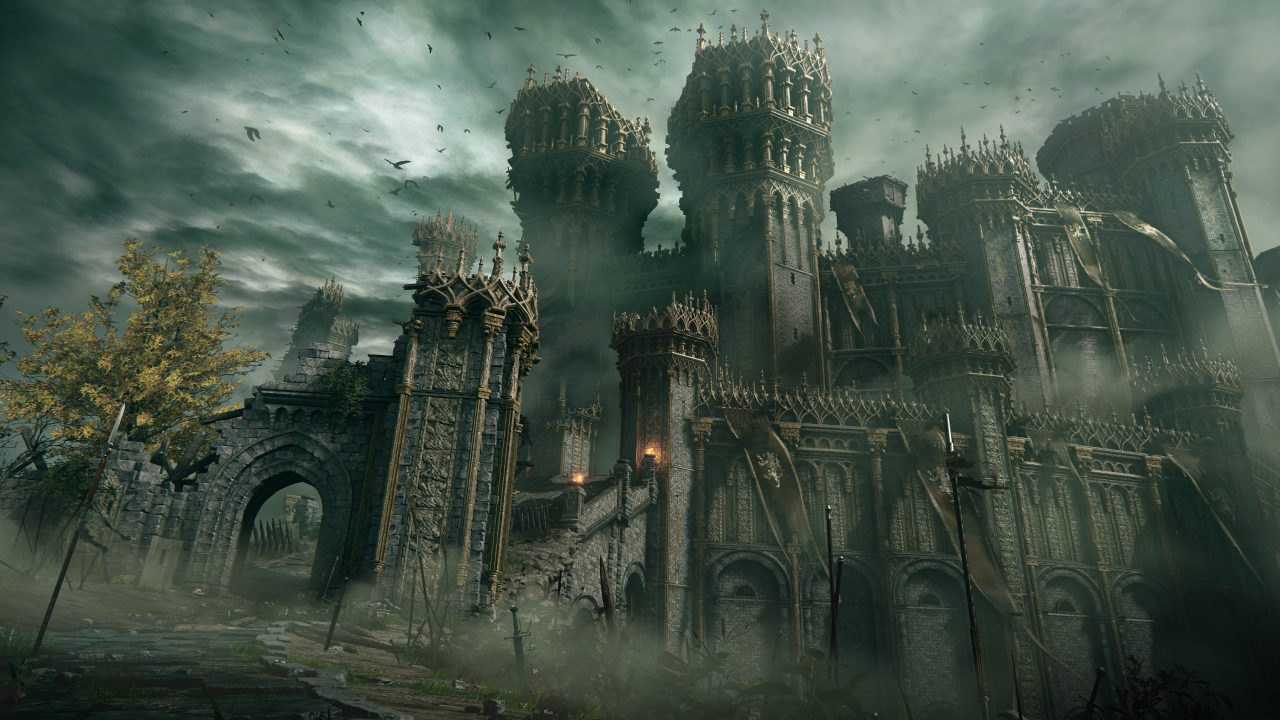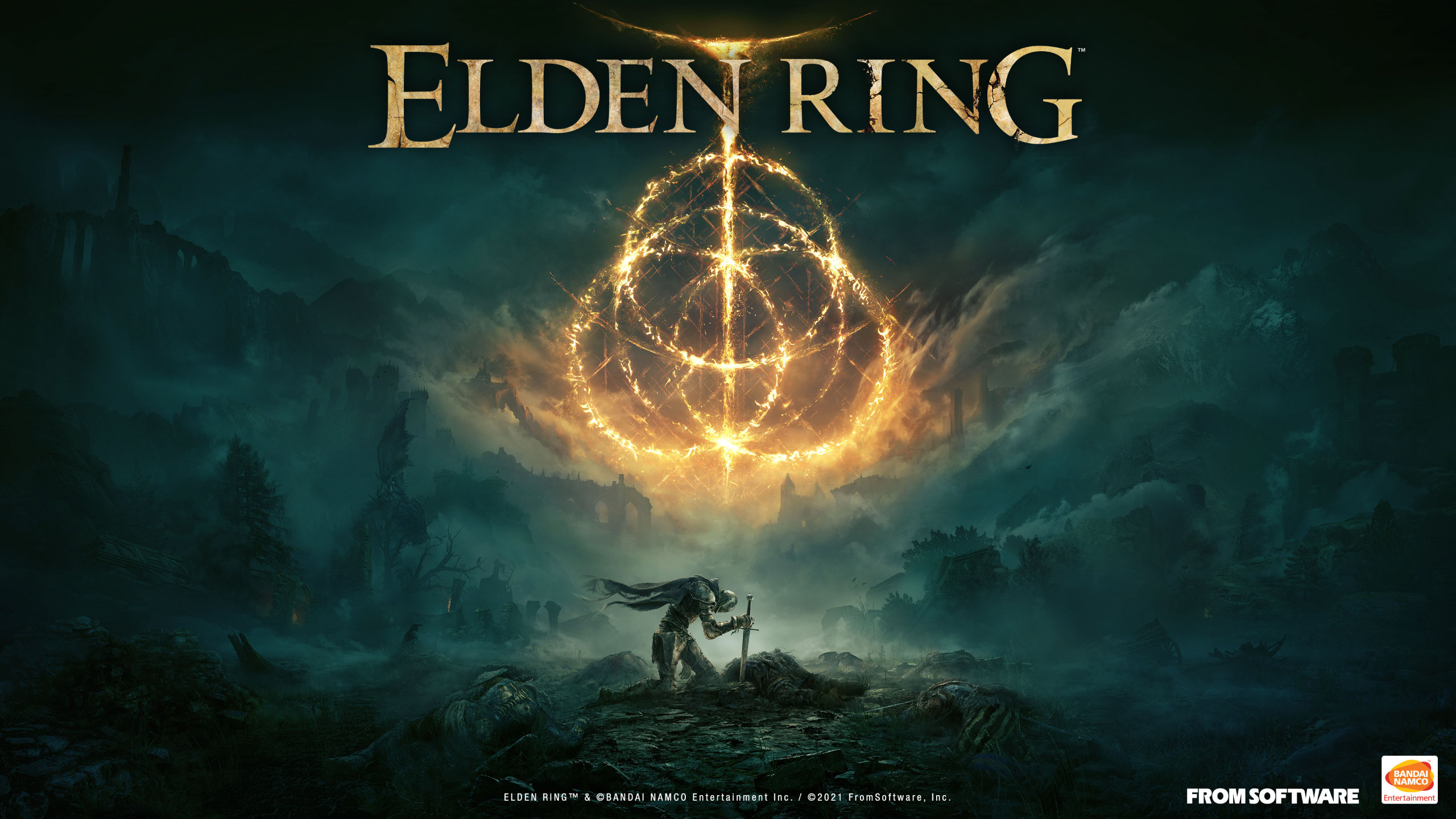Epic. Intense. Eerie. Dramatic. These are probably the four key words I’d associate with both playing Elden Ring and listening to its soundtrack.
However, though those words do encompass much of the game’s mood, they certainly don’t cover it all. They don’t include the moments of absolute joy when beating a tough boss, the feeling of determination to succeed against all odds, the pensive instances where you’re considering your next move, and that instant dread that hits like a wave when you’re in an already deadly situation and get invaded by another player. Thankfully, the soundtrack to Elden Ring also captures the emotions of these more nuanced moments and lays them out before you to both heighten them in-game and provide a great way to reminisce over some of your most indelible memories in the Lands Between.
Music is often used very sparingly in Elden Ring. I’d sometimes find myself wandering about the open world with just the sounds of the environment surrounding me. Music interjects here and there to provide ambient atmosphere and to ramp up the tension as you enter combat. Sometimes with such subtlety that I wouldn’t initially notice the introduction of music until I stopped to check the map or my stats and take a breather. Elden Ring’s soundtrack allows these gentler pieces of music their time to shine by giving them the entire first disc of the double disc set, separating them from the generally more cacophonous boss themes on disc two.
Incorporating all of these more atmospheric pieces together on one disc doesn’t do the individual tracks any favours, however. I find that there are often too many similarities between them, which can make them somewhat indistinguishable from each other. Many of these tracks follow the same pattern—alternating moments of silence followed by slowly swelling strings and environmental sounds. I certainly started feeling some fatigue midway through the first disc and longed for the music to change things up a little more. Thankfully, the theme for “Leyndell, Royal Capital,” composed by Yuka Kitamura, provides the change I was looking for and just at the right time. Though certainly not a change of pace (it’s still a slow, mournful number), this track has many more layers and a more interesting complexity. A broader range of strings break away from the low notes that dominate in the preceding pieces, with rumbling drums and even gentle hints of beautifully played guitar all adding to its majesty. This track is certainly a highlight of mine and one that sits perfectly situated in the track list of disc one.
When listening to the first disc in one sitting, you notice the very slight changes that occur going from location to location in Elden Ring’s world. “Limgrave” introduces the low strings that become the ongoing motif of these environmental tracks, but the instrumentation as a whole gives notes of hope, like a ray of sun trying to break through the misery. As we move through to “Liurnia of the Lakes,” the pitch of the strings goes up and becomes almost shrill and shimmery, as sounds of trickling water play just at the edge of hearing. In “Caelid” we hear mimicry of a swarm of mosquitos and a collection of instruments drone in a way that sounds siren-like, which is very fitting for that hellscape. These changes are all very slight and take place gently, weaving in and out of the recurring elements that give cohesion to the body of work.

As we move into the latter third of the first disc, things start to get scary. The pitch drops even more, and deep strings create a real sense of foreboding, heightened by the punctuation of a single echoing boom from a drum in the darkness. “Mountaintops of Giants” brings in the sound of a breeze blowing through trees, and while ominous, it also sounds meditative. “Crumbling Farum Azula” is another highlight due to its introduction of an almost industrial-sounding drone that works so well with that same echoing boom to create something both sonically claustrophobic and the impression of everything falling apart into nothing.
The final few tracks of the first disc begin the change of mood, tempo, and drama that continues through the second half of Elden Ring’s soundtrack. “Formidable Foe I and II” and “Invader” bring a sense of urgency to the proceedings, with propelling beats and more frantic arrangements for the strings. These lead into two of my other favourite tracks on this disc—”Old Warriors” and “Erdtree Knights.” The former layers sounds and instruments in a way we haven’t yet heard and the latter utilises a powerful choral vocal, bringing it to the fore for the first time to this degree.
The more epic sound continues heading into disc two. The short “The Immured” opens this second set with thunderous drums, chiming bells, and a full orchestra, creating an almost wall of sound. “The Accursed” pulls things back slightly, with a structure built to increase tension and anticipation.
Moving through Elden Ring’s boss themes happens more briskly than the tracks on disc one due to the shorter song lengths, and new common elements begin to present themselves. The low male chanting is often joined by a higher, soprano choir and drums play a much more prominent role. An early standout is “Dragon,” which begins frantically and doesn’t let up in its 1:32 mins length. Shortly after this comes “Red Wolf of Radagon,” another highlight that wouldn’t sound out of place on Jeremy Soule’s Elder Scrolls V: Skyrim Original Game Soundtrack.
Thankfully, there are moments of restraint dotted throughout disc two, such as in “Black Knives.” The interesting string work on this track gives me an Eastern-European folk vibe (though admittedly a very sinister folk vibe!). This track glides through its almost two-minute length much smoother than its louder, more brash surrounding pieces, moving from one moment to another with a dark elegance that I enjoy. “Regal Ancestor Spirit” is another mid-disc highlight that tones down the bombast of the boss themes here and replaces it with a gorgeous airy violin that swells and builds as it moves through its four-minute length. After that, I couldn’t help but feel a little disappointed in the following group of tracks, which return to the very overblown and rather homogenous sound of many of the tracks on this disc. While certainly great at creating drama and an epic mood for the fights themselves, hearing them back to back here becomes a bit much, and again, similar to the first disc, it is hard to distinguish between some of them. Unfortunately, several tracks here also go for quite a similar sound and format. Lacking any major distinction, pieces like “Fallingstar Beast,” “Bloody Fingers,” “Recusants,” and “Fire Giant” don’t bring anything new to the table, and in the context of the wider soundtrack become rather forgettable.
Toward the end of Elden Ring’s OST, “Malenia, Blade of Miquella” provides some good tension on its slow build while “Starscourge Radahn” is fantastically rousing, using the male choir to very powerful effect. “The Final Battle” rounds out the disc and whole soundtrack by morphing, changing, and using a wide range of instrumentation and voice through its almost five-minute length, taking the listener on a journey and ending on a strong note. This track actually performs its ending purpose better than the track “Ending,” which it precedes, as the aforementioned sounds a little messy to me with too many different ideas and sections all thrown into the same track.
Overall, the Elden Ring soundtrack is best taken in small doses to fully appreciate its individual moments. I find that when I listen in an extended sitting, many of its tracks start to blend into one another. This quality is also what leads to it lacking some distinct, memorable tracks in the way we see with many other well-known RPGs. The five composers—Tsukasa Saitoh, Shoi Miyazawa, Yoshimi Kudo, Yuka Kitamura, and Tai Tomisawa—have crafted a cohesive soundtrack that doesn’t sound too far removed from Motoi Sakuraba’s work on the Dark Souls trilogy. The Elden Ring soundtrack is undoubtedly a masterclass in both creating and building tension, but also full-blown epic drama with layers upon layers of instrumentation, choral vocals, and moments of more restrained, delicate, dark beauty. Just take it in small bites.





